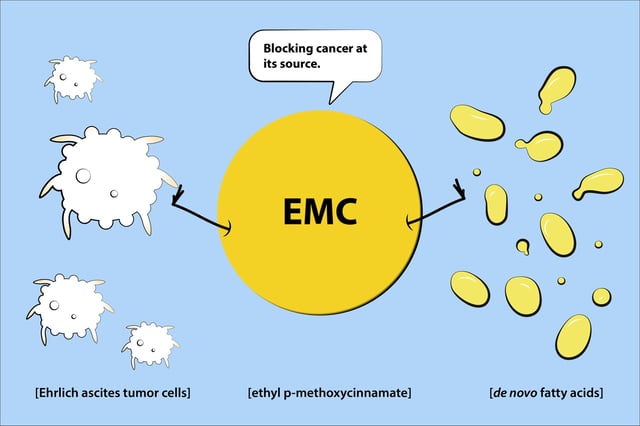Overview
- The study, published May 2 in Scientific Reports, used Ehrlich ascites tumor cells to show that EMC, an ethyl p-methoxycinnamate from kencur ginger, reduces ATP production by inhibiting de novo fatty acid synthesis.
- Researchers led by Akiko Kojima-Yuasa at Osaka Metropolitan University demonstrated that EMC-induced lipid synthesis blockade limits energy supply and impairs tumor cell growth.
- Cancer cells responded to EMC treatment by upregulating glycolysis in a compensatory attempt to offset energy loss, though ATP levels remained depleted.
- EMC exerted cytostatic effects rather than causing cell death, indicating potential benefits when used alongside other therapies for complete tumor eradication.
- The research challenges the glycolysis-centric view of tumor metabolism and highlights lipid pathways as new therapeutic targets in oncology.
